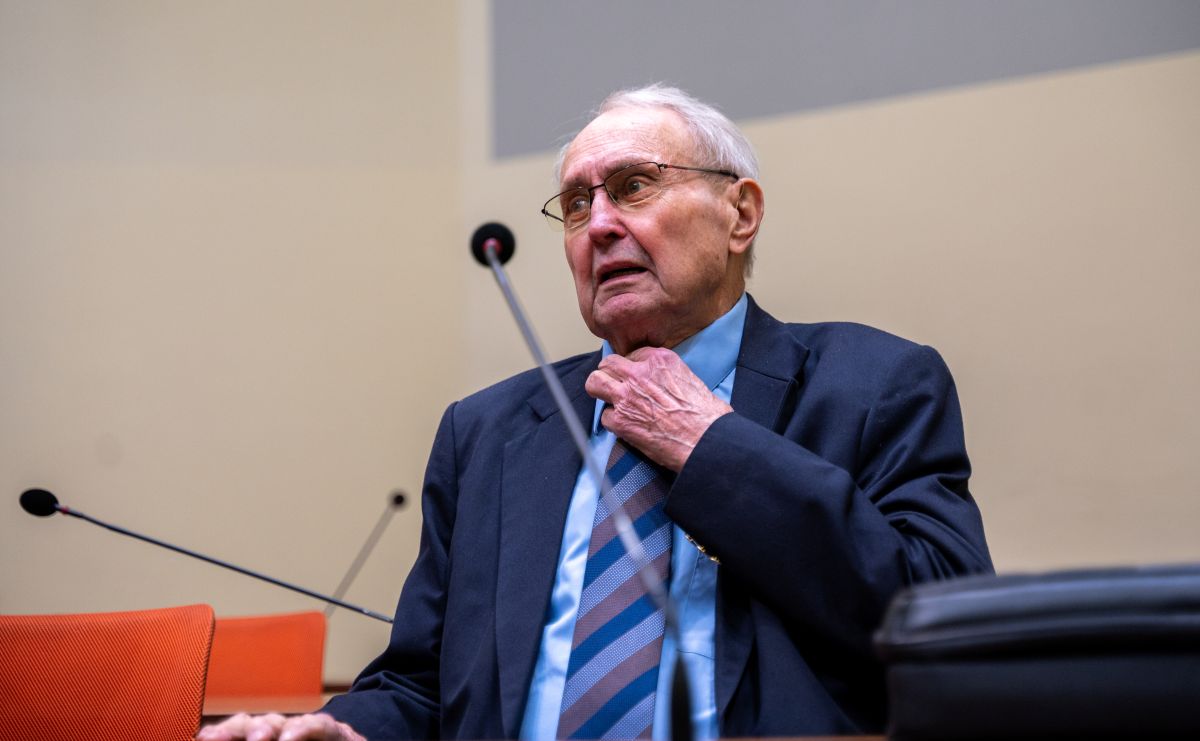Thursday's top story: German auto giants report profits slump following tariff chaos
Tariffs, difficult business in China and the weak dollar have caused BMW to slump in profits by more than a quarter in the first half of the year.
After taxes, the Munich-based group earned €4 billion - 29 percent less than in the same period last year, it announced on Thursday.
This makes the company's third decline in a row in a first half of the year.
However, BMW is in a more stable position than the other German automotive giants: Volkswagen - like its subsidiary Audi - had lost more than a third of its profit in the first half of the year, Mercedes-Benz even more than half.
Tariffs weighed heavily on BMW - and not just tariffs on exports to the USA, but also import tariffs on electric Minis from China to the EU, on which the Munich-based company pays 31 percent.
All together, the Group expects the tariff surcharges to cost it 1.25 percentage points of its margin over the course of the year, which amounts to around a billion euros.
READ ALSO: 'A dark day' - What we know so far about the EU-US trade deal
World's largest metal festival kicks off in the north

Metal fans celebrate after the opening of the "infield" in front of the two main stages on the festival grounds of the Wacken Open Air.
The Wacken festival takes place from July 30th to August 2nd and is considered the largest heavy metal festival in the world.
READ ALSO: 8 of Germany's best music festivals to go this summer
Ex-MP convicted over Azerbaijan bribery scandal
A German court on Wednesday convicted a former lawmaker of facilitating bribes to lobby on behalf of Azerbaijan in a scandal dubbed "Caviargate".
Eduard Lintner, 80, who spent 33 years as an MP for the conservative Christian Social Union (CSU) party until 2009, was handed a nine-month suspended jail sentence by the court in Munich.
He was found guilty of receiving money from Azerbaijan which he then used to recruit other politicians to represent its interests.
In 2014 he recruited Karin Strenz, a lawmaker from the CSU's sister party, the CDU, who sat in the Parliamentary Assembly of the Council of Europe (PACE).
She received around €7,500 a month in return for voting in line with Azerbaijan's interests in the assembly and representing its positions in her speeches.
Strenz died in 2021 and the court ordered her heirs to pay €110,000 as a fine -- equal to the amount of money she received via Lintner.
Lintner had admitted to the payments during the trial but denied wrongdoing, calling them "normal lobbying".

The presiding judge at the trial however called them "classic vote-buying".
Azerbaijan is a small but resource-rich country in the South Caucasus that faces regular criticism over its human rights record.
Controversial US AI software could be used for crime prevention in Germany
Controversial analysis software from US AI giant Palantir could be introduced across the country to help police with crime prevention.
Interior Minister Alexander Dobrindt is considering Palantir among various other options as part of a review looking at "an accelerated approach to implementing analysis capabilities" for the police, a spokesperson for the minister said.
The software, which analyses vast amounts of data and is said to have helped the US track down Osama bin Laden in 2011, is already being used by the police in North Rhine-Westphalia, Hesse and Bavaria.
Other states would prefer to see a European or German solution.
There are also cross-party concerns in Germany about potential dependence on the US government, particularly as Palantir's German co-founder Peter Thiel is a supporter of US president Donald Trump.
"Palantir is not a neutral IT service provider, but a company with deep ties to US intelligence agencies and clear geopolitical interests," SPD MP Johannes Schätzl told Stern magazine.
Others have data protection concerns. Last week, the Society for Civil Rights (GFF), in cooperation with European hackers' organisation Chaos Computer Club, filed a constitutional complaint against the use of the software in Bavaria arguing that it establishes connections to people who are not connected to crimes.
Government approves bill to protect businesses from cyberattacks
On Wednesday, Germany approved a bill that is designed to protect businesses and government institutions from cyberattacks.
With the implementation of the EU Network and Information Security Directive (NIS-2), the 29,500 companies across Germany who operate so-called critical infrastructure will be subject to stricter cybersecurity standards in future.
Companies will have to have appropriate protection against attacks, such as back-up and encryption solutions, and they will also have to report any security incidents.
The law will also give the Federal Office for Information Security (BSI) more supervisory and enforcement powers.
The draft law was largely welcomed by businesses in Germany although some said there was still room for improvement and criticised the lack of clarity around exemptions for certain companies.
Agreed air transport tax cut missing from 2026 draft budget
A reduction in air transport tax that was agreed in the coalition agreement was notably absent from the draft budget for the coming year.
The CDU/CSU and SPD had agreed to reduce "air transport-specific taxes, fees, and charges" and to reverse "the increase in the air transport tax" that came into effect in May 2024.
In response to criticism from several tourism and aviation bodies, who have been calling for reductions and reversals of the tax, Finance Minister Lars Klingbeil said he "cannot assess today whether there is scope for manoeuvre".
READ ALSO: Are German airports and airlines among worst in Europe?
The tax was introduced in 2011 and is also designed to reduce flights and thereby emissions.
Number of single-person households forecast to keep rising until 2045

The number of people who live on their own in Germany is forecast to keep increasing for the next two decades, according to a forecast from the Institute for Research on Building, Urban Affairs and Spatial Development (BBSR).
The number of single-person households could rise to 18.7 million by 2045, an increase of around six percent on 2022, partially due to the fact that more older people are living alone.
The proportion of single-person households in the country would therefore grow from 42 to 44 percent.
And the figure could be even higher in city states, where more than half of all households could have just one resident by 2045.
READ ALSO: Number of people living alone in Germany surges
With reporting by AFP, DPA and Paul Krantz.

Comments